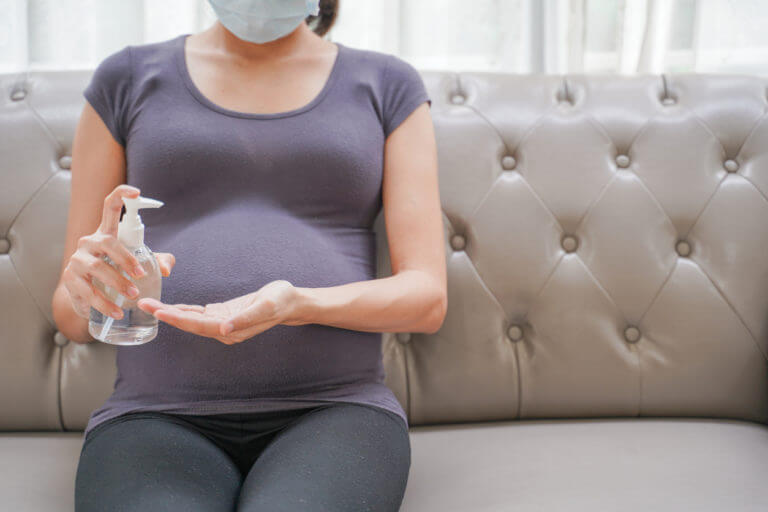
The coronavirus is spread through respiratory droplets transmitted by an infected person sneezing, coughing, talking, or even just exhaling. The droplets may land on objects and, if touched by a non-infected person, they can spread the virus.
That is why handwashing is so important, because you can successfully wash off the virus from your hands with soap and water. It is also why touching your face, particularly your orifices (eyes, nose, mouth), is to be completely avoided, because COVID-19 (Coronavirus Disease 2019) enters the body this way.
Remember that not everyone who is infected with the COVID-19 coronavirus produces symptoms. There are therefore asymptomatic carriers of the virus who can unwittingly spread the virus to others.
If you are pregnant, you are likely very concerned about the coronavirus and whether it can affect your baby. Not a lot is known about the impact of COVID-19 on a woman’s pregnancy, but it is a good idea for pregnant women to take extra precautions when you are around others during the pandemic.
Pregnancy and COVID-19 Symptoms
Pregnant women diagnosed with COVID-19 are more likely to be symptomatic than those who are not pregnant but are of the same age. Pregnant women who have the novel coronavirus are also more likely to develop complications that require intensive care, and to be placed on a ventilator.
This is partly due to a pregnant woman’s lungs and cardiovascular system being strained during pregnancy. Plus, a woman who is pregnant has a compromised immune system.
Pregnant Women Are a Higher-Risk Group
Being pregnant, you are already at a higher risk of experiencing symptoms and complications if you are infected with COVID-19. Plus, the risk increases further if you are African-American or Hispanic (who make up a disproportionate number of pregnant women with COVID-19), of older maternal age, overweight, or have a chronic disease like diabetes.
It is still unknown how the baby is affected by a mother’s testing positive for the coronavirus. Experts are cautiously optimistic about the virus not affecting early fetal development; however, in a study analyzing 33 pregnant women in Wuhan, China, with COVID-19, three of their newborns reportedly tested positive for the virus. However, it is not clear whether it was a case of transmission directly from the mother or whether the baby was infected in the hospital after being born. Being a novel (new) virus, studies are ongoing and data continues to be updated.
If you are pregnant, protect yourself and your baby by wearing a mask when you are around other people, avoiding social gatherings, washing your hands frequently, and not touching your face. If you must touch your face, use a tissue so that you avoid direct contact.
OB/GYN in Syracuse, NY
Our obstetricians and gynecologists at University OB/GYN Associates are expert clinicians who are here to provide the full breadth of women’s healthcare. We are dedicated to caring for you and your baby, making sure you have a safe pregnancy and delivery even during the pandemic. Many healthy babies have been born during this unusual time, and we can help you make sure that yours is healthy, too.
If you’re planning to get pregnant or have just found out that you are pregnant, it’s important to schedule a prenatal visit for the health of both you and your baby. Call us today at (315) 464-5162 to schedule your appointment. We look forward to seeing you!



